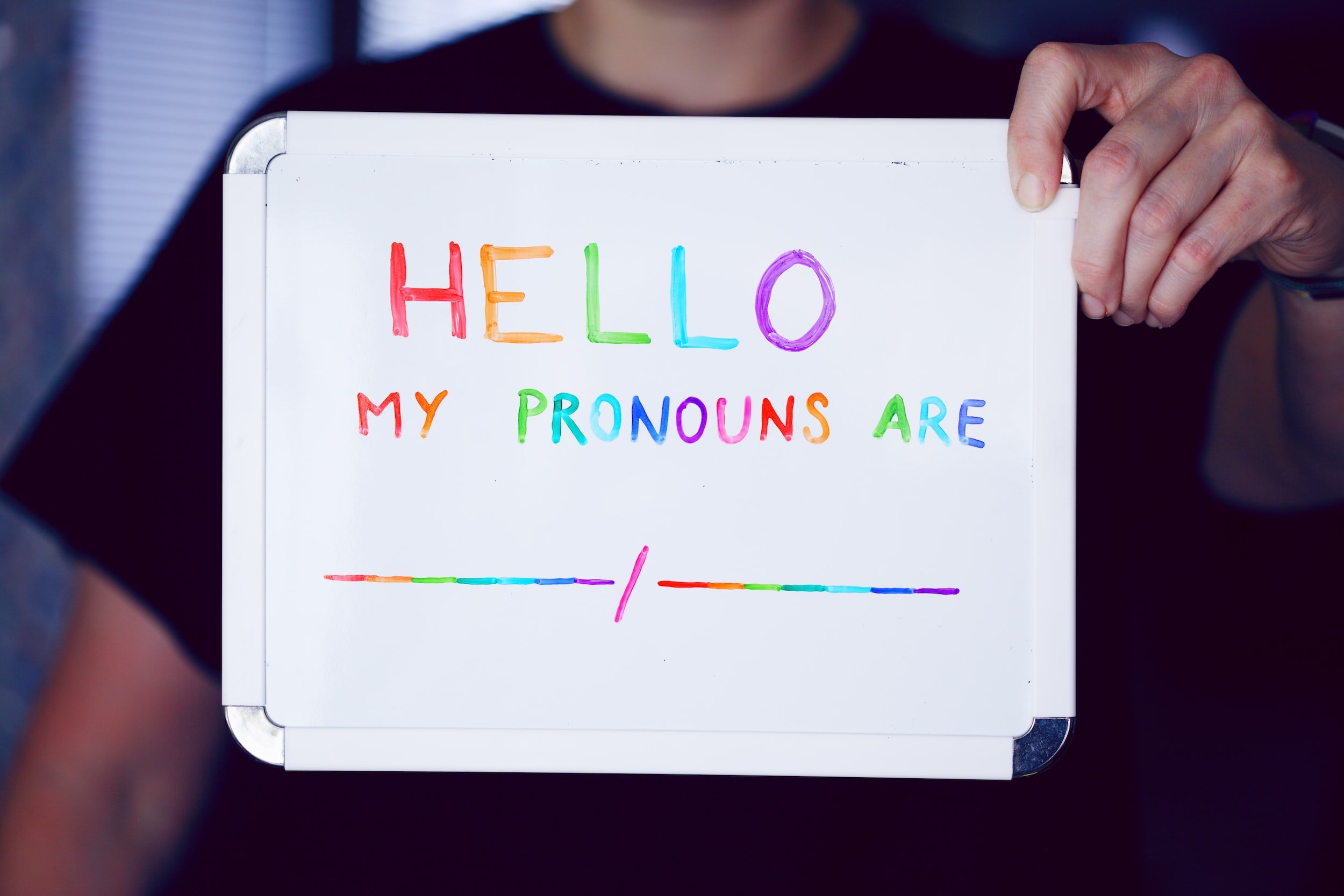These days, most Americans are aware of the singular gender neutral usage of they/them pronouns even if they aren’t willing to use them but not many people are aware of neopronouns. Neopronouns are alternatives to he, she, and they pronouns used by some nonbinary people. Some common neopronouns are xe/xir/xirs, ze/hir/hirs, and fae/faer/faers.
When you learn about them for the first time, they may seem daunting, so this blog post will break down what they are, how they are used, and why they are used.
What are neopronouns?
A neopronoun functions just as any other pronoun does: to refer to someone by something other than their name while talking about them. Despite the name meaning “new pronoun,” the concept is actually not new. In 1789, William H. Marshall documented the existence of the singular gender neutral pronoun “ou,” which Marshall traced back to Middle English in the 14th century.
There are generally two categories of types of neopronouns: those that mirror the structure of traditional pronouns, and nounself pronouns. An example of the mirroring category is xe/xir/xirs, pronounced like “zee/zeer/zeers,” while an example of the nounself category is fae/faer/faerself, derived from the word faery. An exception to these two broad categories is when people prefer to solely be called by their name instead of any pronouns. At the end of the day, neopronouns include any pronouns aside from he/she/they.
How are neopronouns used?
Luckily, despite how foreign the concept of neopronouns may be to, these new words don’t require you to learn new grammar rules. They can be used in the place of traditional pronouns with the equivalent conjugation of the verb following it. Let’s explore some example sentences:
Using a traditional pronoun: He went to the store to pick up his medication.
Using a neopronoun: Xe went to the store to pick up xir medication.
Using a nounself pronoun: Fae went to the store to pick up faer medication.
Why are neopronouns used?
Each individual has different reasons for wanting to use neopronouns. While it varies from person to person, here are some of the most common reasons why someone would choose to use neopronouns over traditional pronouns.
They/them pronouns are often viewed as androgynous, but not every non-binary person experiences their gender as androgynous or “in the middle”, such as someone who identifies as a demigirl.
Neopronouns are part of gender expression, similarly to one's external appearance. Some people feel like their gender cannot be appropriately conveyed by she, he, or they pronouns.
The use of neopronouns is particularly popular amongst autistic people. Autistic people experience the world and their internal identity differently from allistic/neurotypical people which includes gender. This is not to say that one has to be autistic to use neopronouns but they tend to be more common amongst autistic nonbinary people due to “different ways autistic people interpret and engage with themselves and others.”
Criticisms of Neopronouns
Neopronouns are a hotly debated topic for several reasons, both inside and outside of the trans community. Here are some of the most common criticisms:
A primary function of pronouns as a part of speech is to make it easier to refer to someone. Due to their rarity, neopronouns can complicate communication rather than simplify it.
The trans+ community as a whole faces more pressing and serious issues related to harassment, violence, and civil rights; some people feel fighting for neopronoun use is not worth their time and energy if it will distract from more serious concerns.
To outsiders, neopronouns are easy ammo to make fun of and invalidate trans people as a whole. Some LGTBQ+ people who criticize neopronouns worry that this sets back the community in terms of gaining equal rights and acceptance.
While there is some validity to these criticisms, at the end of the day it is a basic sign of respect to use someone’s requested pronouns. If it is challenging for you, that is okay, challenge yourself! The unfamiliarity makes it totally understandable if you are confused. That being said, difficulty is not a reason to disrespect someone. It is okay to be upfront with people who use neopronouns that you struggle with using them, and more often than not, they will understand and be open to a respectful dialogue about it. It is important to keep in mind that just because something might not seem important to you, you cannot understand the full nuance of why it is important to someone else and therefore cannot decide on their behalf that it does not matter. Misgendering someone or using invalidating language is never the best solution and runs the risk of damaging the relationship.
If you are still confused about using neopronouns, here are additional resources to further your research:




























